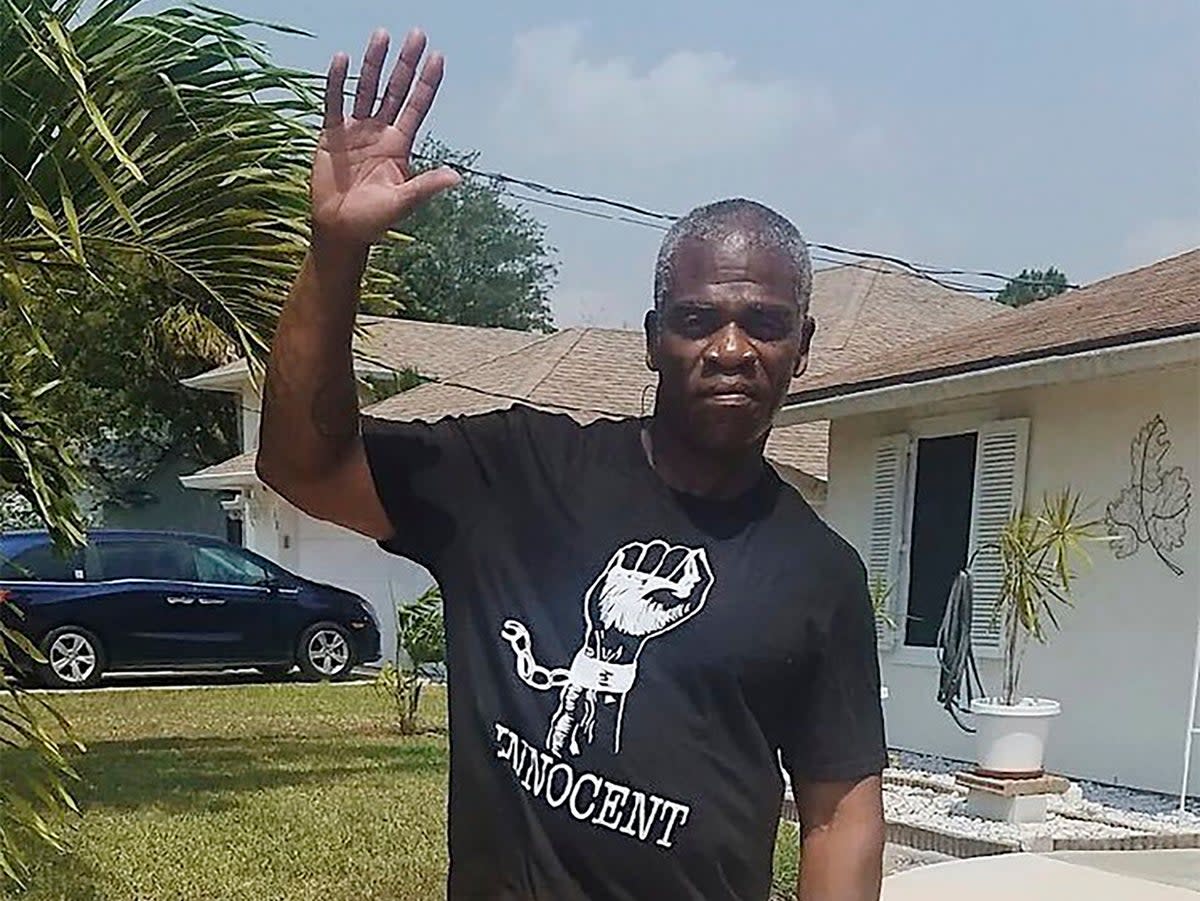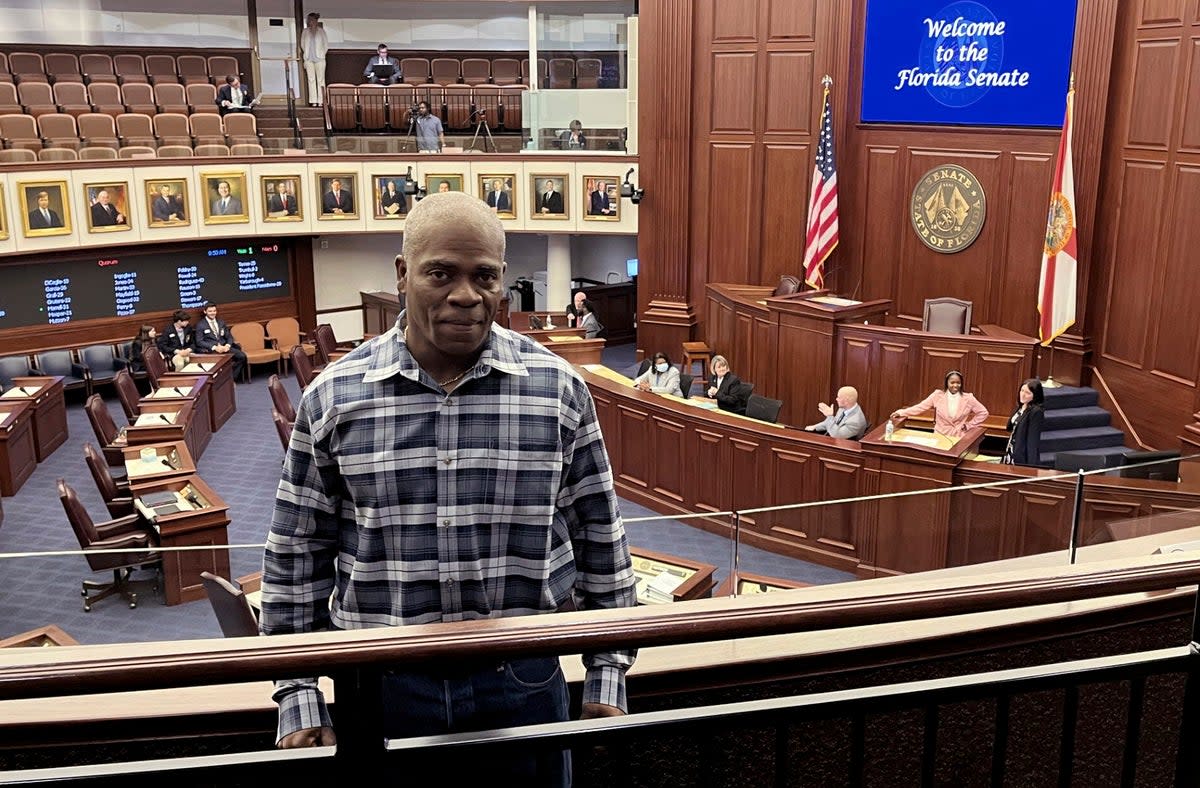Man wrongly imprisoned for 16 years is shot dead by Georgia police officer

A man who served 16 years behind bars for a crime that he did not commit was shot dead by a Georgia sheriff’s deputy during a traffic stop.
Leonard Allen Cure, 53, was fatally shot by the Camden County deputy who pulled him over while driving northbound on Interstate 95, according to the Georgia Bureau of Investigation (GBI), which is reviewing the shooting.
Cure was released from prison in 2020 after his case was taken up by the Innocence Project of Florida, a nonprofit legal organisation that helps exonerate people who have been wrongfully convicted.
The GBI said that around 7.30am on 16 October, the Camden County deputy performed the traffic stop.
Officials claim that Cure exited his car at the request of the deputy, who has not been publicly identified, and complied with the officer until he learned that he would be arrested.
When he refused to follow the deputy’s instructions, Cure was shot two times with a Taser and struck with a baton before he was shot by the deputy. Emergency responders rushed to treat Mr Cure, but he later died.
Mr Cure was stopped because he was reportedly driving recklessly and travelling at speeds of at least 90mph in an area where the speed limit was 70mph, a spokesperson from the Camden County Sheriff’s Office told The Independent.
The Independent has contacted the Camden County Sheriff’s Office for comment.
The Innocence Project’s executive director, Seth Miller, said he was devastated by news of Cure’s death.
“I can only imagine what it’s like to know your son is innocent and watch him be sentenced to life in prison, to be exonerated and ... then be told that once he’s been freed, he’s been shot dead,” Mr Miller said to the Associated Press.
Mr Miller explained that many people freed from prison are worried that they would end up in custody again.
“Even when they’re free, they always struggled with the concern, the fear that they’ll be convicted and incarcerated again for something they didn’t do,” he said.
Cure was convicted in 2003 for an armed robbery and assault at a drug store in Dania Beach, Florida.
After an initial jury became deadlocked, a second jury decided his fate and he was sentenced to life in prison due to other convictions for robbery and other crimes he had in his past.
After 16 years, the Broward State Attorney’s Office’s Conviction Review Unit asked a judge to release Cure from prison.

The unit had said it had found “troubling” evidence to suggest that Cure had a strong alibi for his innocence in the crime that was previously disregarded.
They also argued that there was no physical evidence or a solid witness to confirm that he was at the scene.
Cure was finally released from prison in April 2020, with a judge vacating his conviction and sentence in December.
“After he was freed and exonerated by our office, he visited prosecutors at our office and participated in training to help our staff do their jobs in the fairest and most thorough way possible," Broward State Attorney Harold Pryor told The South Florida Sun Sentinel at the time.
Cure would frequently call to check in on Assistant State Attorney Arielle Demby Berger, the head of the Conviction Review Unit, and offer encouragement to continue to do “the important work of justice,” Mr Pryor continued.
He also told the paper he was “looking forward to putting this situation behind me and moving on with my life.”
He had a job, was in the process of buying a new home and was aspiring to attend a music production college, according to Reuters.
In August this year, Cure received $817,000 from Florida Governor Ron DeSantis after he signed a bill for his compensation for his conviction, along with educational benefits.
